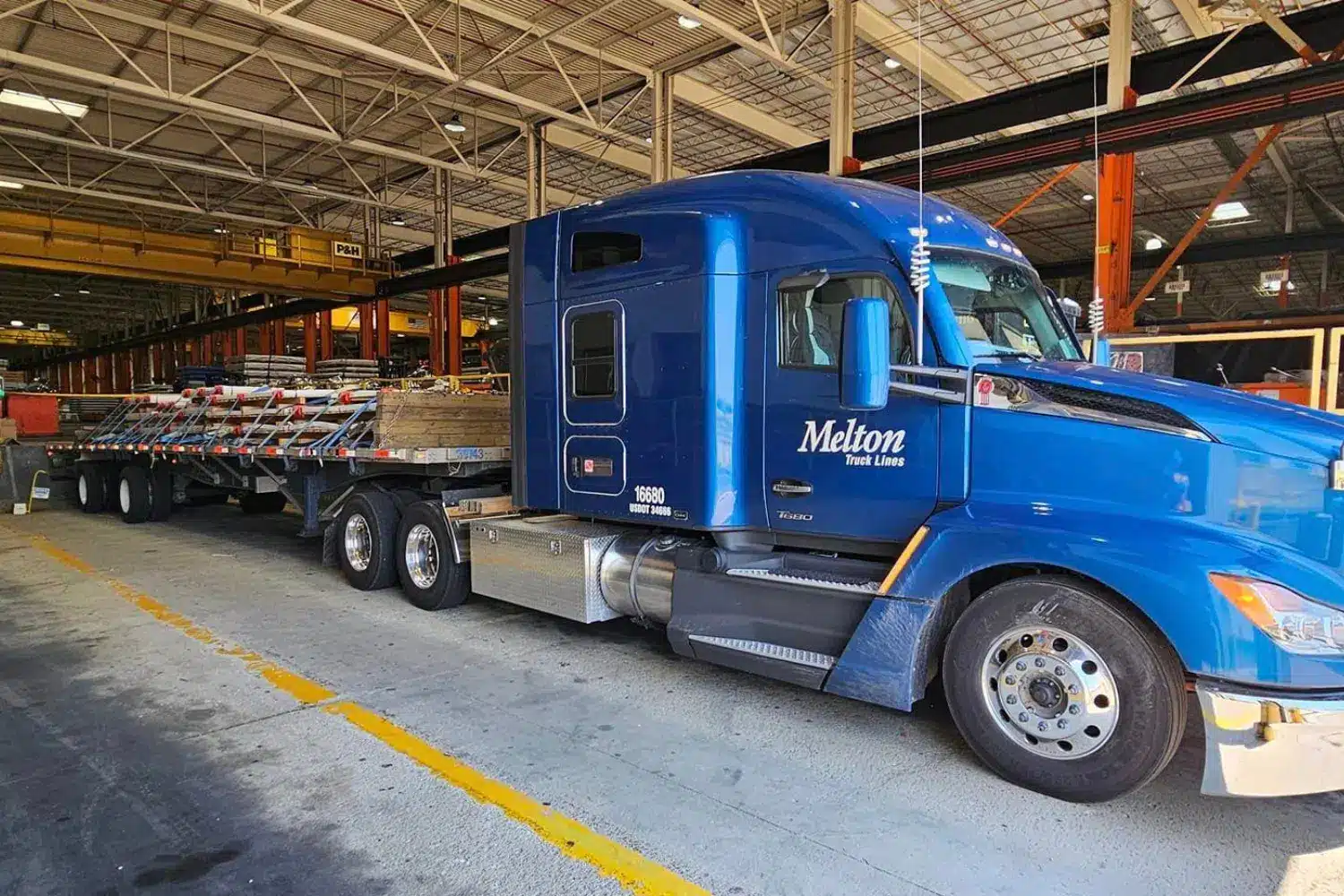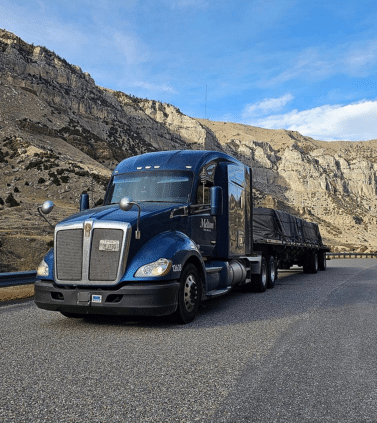
Flatbed Trucking in the Construction Industry
The construction industry is a very dynamic sector, involving the movement of various materials, equipment, and oversized loads for projects across the country. Because of this, reliable transportation is crucial to making sure jobs stay on schedule. Flatbed trucking is a vital mode of transportation that keeps things efficient in the construction industry – here, we’ll explore how flatbed trucks can be utilized in construction.
Benefits of Using a Flatbed Trucking Company to Transport Construction Materials
Choosing a flatbed carrier to move construction materials offers several benefits to help improve your logistics strategy. Some of these perks include:
Efficiency: Flatbeds provide open-deck transportation, meaning it can be unloaded from all sides using forklifts or cranes. This makes loading and unloading much faster than an enclosed trailer and can help construction projects stay on schedule.
Cost-Effectiveness: With varying trailer types able to haul irregular loads and many having a greater carrying capacity, flatbeds can handle loads that might require multiple trips to move the same equipment to designated sites. By consolidating shipments, companies can save on transportation costs and reduce downtime on job sites.
Versatility: Flatbed trucks can transport a broad range of materials in different shapes, sizes, and weights, making them adaptable to the diverse needs of construction projects. Even if a load exceeds the dimensions of a standard flatbed trailer, it can still be hauled as an over-dimensional load.
Common Construction Materials Hauled with Flatbeds
As previously mentioned, flatbeds are ideal for transporting a wide variety of construction materials. Flatbeds are an open platform, enabling easy loading and unloading of goods that don’t fit within the confines of enclosed trailers. Some of the most common construction materials hauled by flatbeds include:
Steel and Metal Components: Steel beams, pipes, rebar, and extruded materials are integral to many construction projects. Flatbeds can easily handle these heavy, lengthy, and sometimes irregularly shaped materials.
Lumber: Essential for framing and structural work, lumber is often transported in bulk via flatbeds which can accommodate longer lengths and varying sizes required for certain projects.
Prefabricated Structures: Prefabricated wall panels, modular units, and other custom-made structures can often be unwieldy and require flatbed trailers capable of hauling oversized and overweight units.
Concrete and Cement Blocks: Whether laying precast concrete slabs, blocks, or foundational materials for bridges, concrete can be a heavy material requiring heavy-duty flatbed trailers for transportation.

Hauling Construction Equipment with Flatbeds
Flatbeds aren’t just for materials—they’re also a go-to for moving construction equipment. Heavy machinery like excavators, bulldozers, cranes, and loaders are important to most construction projects, but they can be difficult to transport due to their size and weight. Here’s how flatbeds can help:
- Ease of loading and unloading due to no walls or size constrictions, flatbeds make loading and unloading straightforward. Often only needing ramps, forklifts or cranes to complete the job.
- Capacity for heavy loads far exceeding standard box trailer and thanks to their durable construction and robust load capacity.
- Flexibility for various equipment types ranging from smaller, mid-sized equipment to more heavy-duty machinery, flatbeds can accommodate a wide variety of equipment and sizes.
Transporting Oversized Loads with Flatbed Trucking
Oversized loads—items that exceed the legal width, height, or weight limits for standard trailers—are a common challenge in construction. Flatbed trucks are the optimal solution for transporting these oversized items, such as:
- Precast Concrete Panels
- Large Steel Beams
- Bridge Components
- Wind Turbine Blades
- Heavy Machinery
Flatbeds play an essential role in the construction industry, offering flexibility, efficiency, and reliability for transporting a wide variety of materials, equipment, and oversized loads. Whether you’re moving lumber, steel, heavy equipment, or oversized structures, flatbed trucking provides the heavy-duty transport solutions the construction industry demands. With over 70 years of experience, Melton Truck Lines has the expertise required to handle your construction loads – check out our services page for more information.
